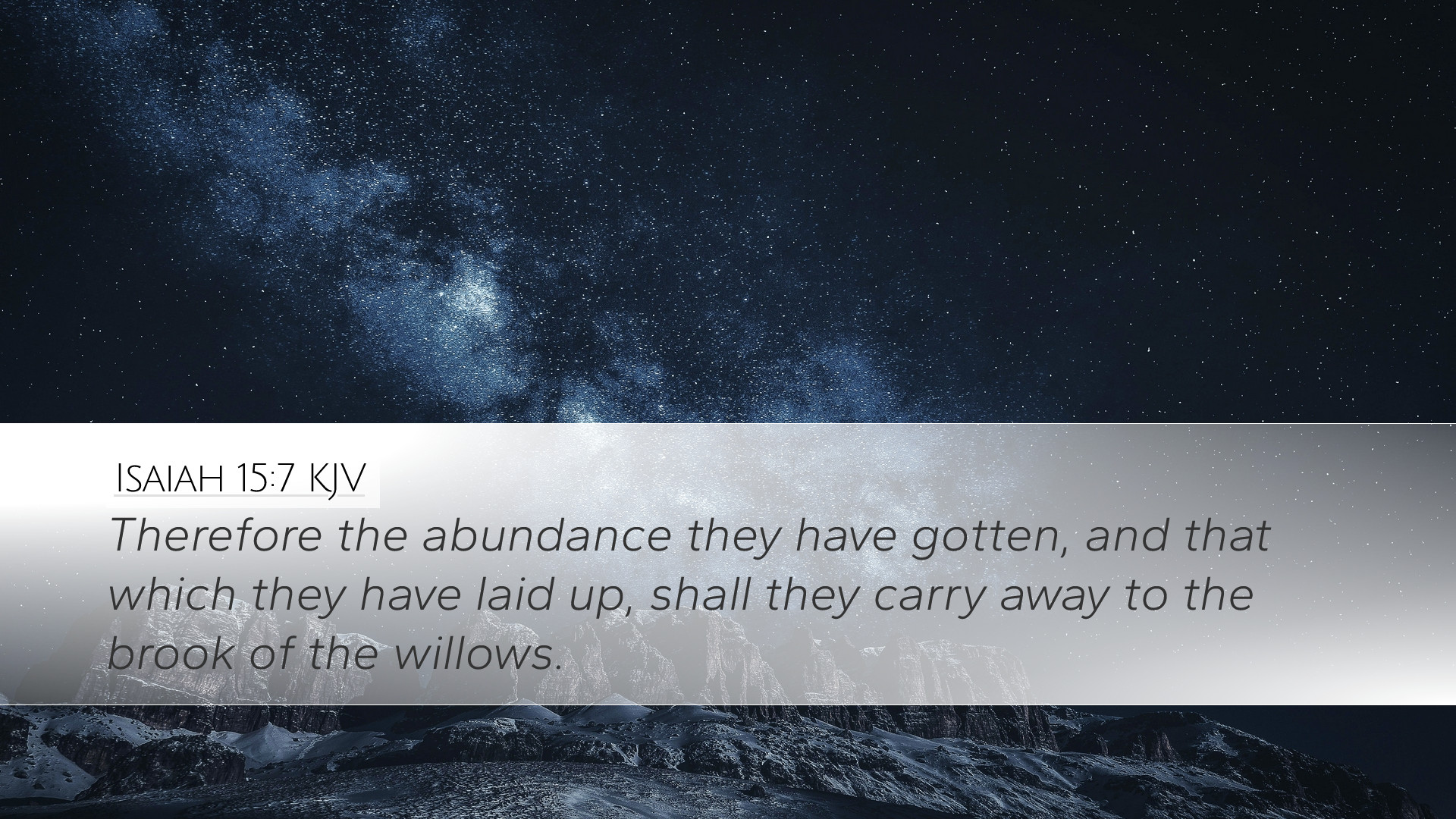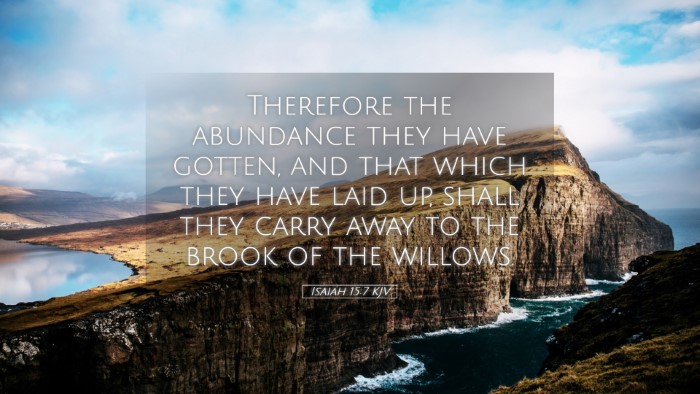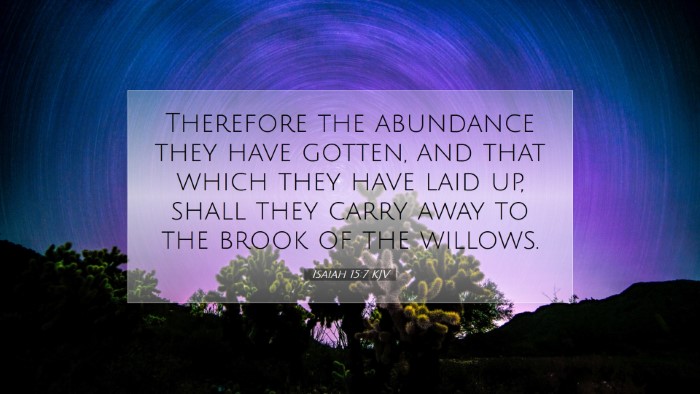Commentary on Isaiah 15:7
Isaiah 15:7 reads: "For because of the swords of the mighty, and because of the great destruction, they shall carry away their goods, and their treasures, and their precious things." This verse is set against the backdrop of a prophetic message concerning Moab's forthcoming judgment and calamity.
Contextual Analysis
The chapter opens with a lamentation for Moab, indicating the dire consequences that follow their sinfulness and idolatry. Isaiah prophesies the devastation that will befall the region, and in verse 7, the focus shifts to the effects of war and poverty.
The Nature of Moab's Sin
Moab’s sins are described throughout Isaiah, where their pride, idolatry, and reliance on alliances are highlighted. Matthew Henry notes that "Moab, in their pride and sin, turned away from the Lord, bringing upon themselves the wrath that is to come."
The Symbolism of Swords
The "swords of the mighty" symbolize the great violence and the swift judgment that will come upon Moab. Albert Barnes mentions, "The image of a mighty warrior brings to light the overwhelming power that the Lord will wield against Moab."
The Consequences of War
Because of the warfare waged against them, the treasures and goods of Moab are to be taken away, illustrating not only physical loss but spiritual degradation. Adam Clarke emphasizes, "The loss of possessions during conflict mirrors the spiritual poverty that sin invites."
Theological Implications
This verse serves as a reminder of the broader theological perspective on divine judgment. The judgments upon Moab are not simply historical; they carry theological weight that extends into moral and spiritual lessons applicable for today. The pain foreshadowed in these ancient texts resonates with contemporary issues of spiritual neglect.
The Nature of God's Justice
God's justice is portrayed as both inevitable and necessary. It reflects His holiness and the consequences of sin. The comprehensive destruction noted in this verse reveals God's intolerance for iniquity. In modern application, this verse challenges both believers and non-believers to reflect upon the life choices made and the faithfulness upheld.
Lessons on Wealth and Security
Furthermore, the stripping away of "goods, and treasures, and precious things" addresses the human tendency to find security in material possessions rather than in God. Matthew Henry warns, "Those who trust in their treasure over God will find that it can be taken away in an instant."
Practical Applications
For pastors and theologians, this verse provides a profound opportunity to teach about the implications of turning away from God. It serves as a reminder of the transient nature of earthly goods and the importance of spiritual wealth.
- Emphasizing Repentance: Pastors can draw from this verse to emphasize the need for sincere repentance from sin as a means toward receiving God’s mercy.
- Teaching on Materialism: The commentary lends itself to teaching about the dangers of materialism and the importance of storing treasures in heaven (Matthew 6:19-21).
- Encouraging Faith in God’s Provision: Students of the Word can be encouraged to find assurance in God's provision, considering that earthly treasures can be fleeting.
Concluding Reflections
Isaiah 15:7 crystallizes the tragic fate of Moab as a cautionary tale about the far-reaching consequences of forsaking God. The rich insights from commentators like Henry, Barnes, and Clarke remind us that while judgment is severe, the call to repentance and reliance on God remains open throughout Scripture's narrative.
As we consider the depths of God’s justice, let us also reflect upon His grace, recognizing that through Jesus, the true treasure is found, and the faithful are called to resist all worldly allurements.


